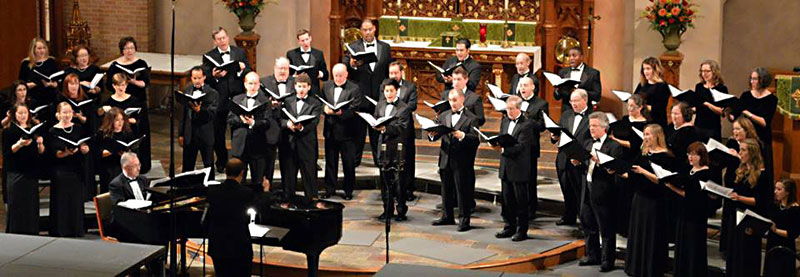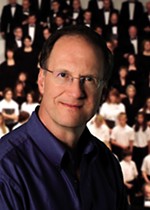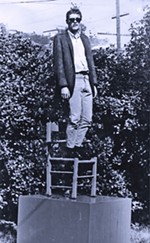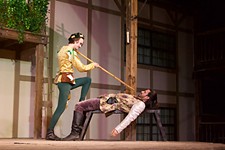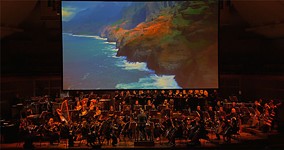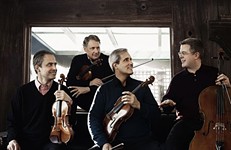Chorus Austin's The Witching Hour
For this early November concert, conductor Ryan Heller led three dozen singers through works old and new, familiar and obscure, exploring our relationship with death
Reviewed by Robi Polgar, Fri., Nov. 13, 2015
This year's celebration of the dead seems to have lasted longer than usual, stretching from Halloween to this month's Friday the 13th, an extension of creepy feelings and parties for the dearly departed. Maybe we have too many friends and loved ones passed to limit our celebrations to just a few days of fall. Or maybe it's not fair to limit the sell-by date of the over-abundance of music marking our shift to longer nights and the impending year's end.
Taking advantage of this bounty, Chorus Austin unearthed a vast repertoire of music inspired by Halloween, All Saints' Day, and All Souls' Day and created The Witching Hour, a concert exploring the intricate, frightening, comedic, and gorgeous choral compositions that honor the dead and remind the living of their mortality. Conductor Ryan Heller led the 30-odd chamber ensemble singers through works centuries old and newly minted – J.S. Bach's "Come, Sweet Death" (1736) matched by the feather-light beauty of Casey Rule's 2014 award-winner, "Draw On, Sweet Night" – and works familiar and obscure: Ravel, Vaughan Williams, and John Williams set against the lesser-known Hungarian Lajos Bárdos, whose "Libera Me" offered a stark counterpoint to Rule's hopefulness.
Then there was the exploration of the singers' range of abilities, from Heinrich Schütz's soaring, prayerlike "Selig Sind Die Toten" (Blessed Are the Dead) to the ever-slowing, deepening bass line ("slowly down-sinking!") and explosive crescendo of Healey Willan's "How They So Softly Rest." These were followed by a setting of e.e. cummings' "Hist Whist" (Little Ghost Things), sung with flair and a wink by the women of the ensemble.
That same self-awareness and theatrical flair flowed through one of the evening's highlights, Rautavaara's Suite de Lorca, a swift and delightfully dramatic four-parter that wove together rhythms of horses a-gallop, a frightening cry, a moonrise, and Death searching the tavern for souls to take.
The featured work, Hugo Distler's Totentanz, is a difficult piece and rarely performed on this side of the Atlantic. Sequences of haunting song that recall medieval chant are interspersed with dialogue as Death – a bit of a scold and wonderfully voiced by Gil Zilkha – commands the living, from emperors to newly born babes, to "dance to my pipe." A dozen souls are called to the dance, each read by a different ensemble member. Distler's message is deeply religious, yet a modern listener can't help notice the irony and humor as the mighty fall; that disconnect and the staccato structure of the piece resulted in a somewhat forced theatricality.
Opening the concert's second half was "Come, Sweet Death," and here the theatricality was strikingly effective. The ensemble surrounded the audience, allowing individual voices to swell from different parts of the room, adding layers of texture to the performance. This and Vaughan Williams' "The Lover's Ghost" were the outstanding selections, the chorus coming into its own on the latter, an exquisite and powerful turn.
Chorus Austin has a newly minted youth choir, and this charming and talented ensemble added its voices for a creepy work by Britten ("Old Abram Brown") and the Saint-Saëns/Prizeman lament "Lacrymosa." Youth and adults joined voices for a rousing finale of John Williams' "Double Trouble," a work instantly recognizable to anyone familiar with the Harry Potter franchise (all the kids, most of the adults). As Maestro Heller pointed out, the future of choral music is in good hands.
The Witching Hour
Covenant Presbyterian ChurchNov. 7





